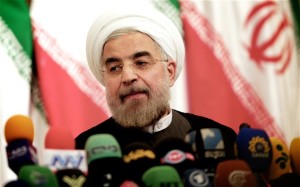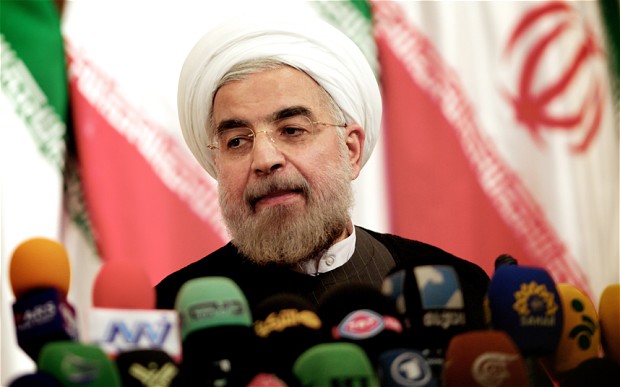 During celebrations marking the 33rd anniversary of the liberation of the Iranian city of Khorramshahr, a symbolic victory in the 1980-1988Iran-Iraq war, President Hassan Rouhani stated that the nuclear motivated sanctions imposed on the country are equal to a territorial occupation aimed at stopping them from living through politico-diplomatic means.
During celebrations marking the 33rd anniversary of the liberation of the Iranian city of Khorramshahr, a symbolic victory in the 1980-1988Iran-Iraq war, President Hassan Rouhani stated that the nuclear motivated sanctions imposed on the country are equal to a territorial occupation aimed at stopping them from living through politico-diplomatic means.
Less than six weeks before the deadline for a final deal on the Iranian program expires, Rouhani called on Iranians to “join hands and free our economic territory which was unjustly occupied by the countries of the P5+1 (Britain, China, France, Russia, the United States and Germany) and the UN Security Council.” He termed them as “the enemies” that are strangling the country “as if blood was prevented from flowing in (our) veins” because they have blocked the selling of oil and hold the banking industry under a siege since money can neither be sent to or received from abroad. He lamented that “diplomatic and political tools” have enabled such actions against Iran.
The UN Security Council adopted six resolutions, four of which imposed sanctions, against Iran’s nuclear and missile programs between 2006 and 2010. Since 2012, the United States and the European Union have also applied a series of unilateral sanctions that specifically target the energy and banking sectors.
However, Tehran continues to maintain that its nuclear program is for peaceful purposes and hardliners are against any deal that will lead to the reduction of nuclear activities in its plants although the framework agreement encouraged such actions.
Tehran is willing to allow UN inspectors into its military sites in a possible deal but a negotiator clarified that it will be under a “managed access” hinting that it will be done according to Tehran’s terms.
